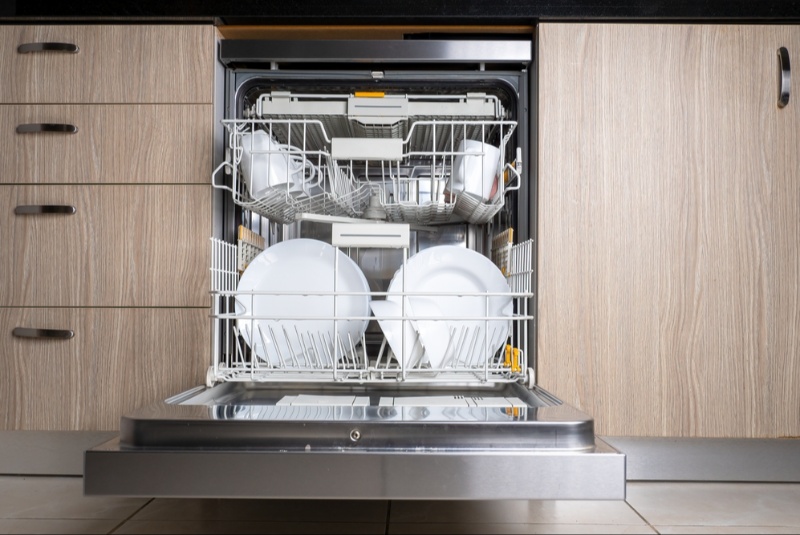The modern kitchen has become a hub of activity in our homes, and appliances like dishwashers have become indispensable in helping us manage our daily chores efficiently. A reliable dishwasher not only saves time but also conserves water and energy, making it an eco-friendly addition to your kitchen. However, with numerous options available in the market, choosing the right dishwasher can be a daunting task. In this smart guide, we will walk you through the essential factors to consider when purchasing a dishwasher, ensuring you make an informed decision that aligns with your needs and preferences.
Dishwasher Types
Before delving into the specifics, it's crucial to understand the different types of dishwashers available. Each type comes with its own set of advantages and considerations, so you'll want to choose the one that suits your kitchen layout and usage habits.
- Built-In Dishwashers: These are the most common type and are designed to fit seamlessly under your kitchen counter. Built-in dishwashers are available in various sizes and configurations, including standard 24-inch models and compact 18-inch versions. They offer a polished, integrated look and are typically more spacious than other types.
- Portable Dishwashers: Portable dishwashers are a great option if you have limited space or are renting your home. They come on wheels, allowing you to move them around the kitchen as needed and connect them to your faucet for water supply. However, they have less capacity compared to built-in models and can be less energy-efficient.
- Countertop Dishwashers: Ideal for small kitchens or singles and couples, countertop dishwashers are compact, space-saving appliances that sit on your kitchen counter. They are easy to install, require less water and energy, but may not accommodate larger loads.
- Drawer Dishwashers: Drawer dishwashers come in single or double-drawer configurations, allowing you to run smaller loads separately. This can save energy and water when you only have a few dishes to wash. They are often found in modern, upscale kitchens and provide a sleek, customizable look.
Capacity and Size
Once you've decided on the type of dishwasher that suits your kitchen, consider its capacity and size. Dishwashers come in various sizes to accommodate different loads, so it's essential to choose one that matches your household's needs. The standard built-in dishwasher size is 24 inches, but smaller 18-inch models are available for compact kitchens.
To determine the appropriate capacity, assess your daily dishwashing requirements. If you have a larger family or regularly host gatherings, opt for a dishwasher with a larger capacity that can handle more dishes in a single cycle. Conversely, smaller households or individuals may find a compact dishwasher sufficient.

Energy Efficiency
Energy-efficient appliances not only save you money on utility bills but also contribute to a more sustainable environment. When shopping for a dishwasher, look for the ENERGY STAR label, which signifies that the appliance meets strict energy efficiency standards. ENERGY STAR-certified dishwashers use less water and energy, reducing your carbon footprint.
Additionally, consider the dishwasher's energy-saving features, such as delayed start options, which allow you to schedule wash cycles during off-peak hours, when energy costs are lower. Some models also offer eco-friendly wash cycles that use less water and energy without compromising on cleaning performance.
Cleaning Performance
The primary purpose of a dishwasher is to clean your dishes effectively. To ensure you get reliable cleaning performance, pay attention to the following factors:
- Wash Cycles: Most dishwashers offer multiple wash cycles to accommodate different types of dishes and levels of soiling. Common wash cycles include normal, heavy-duty, delicate, and eco-friendly. Ensure the dishwasher you choose has the cycles you need for your specific dishwashing needs.
- Spray Arm Design: A dishwasher's spray arm design plays a crucial role in distributing water and detergent evenly, ensuring thorough cleaning. Look for dishwashers with multiple spray arms and rotating jets for optimal coverage.
- Soil Sensors: Many modern dishwashers come equipped with soil sensors that detect the level of dirt on your dishes and adjust the wash cycle accordingly. This feature not only saves water and energy but also ensures your dishes are spotless.
- Drying Options: Efficient drying is essential to prevent water spots and achieve sparkling clean dishes. Some dishwashers offer heated drying, while others use fans to circulate air for natural drying. Consider your preference and the dishwasher's drying capabilities.
Noise Level
Dishwasher noise can be a significant concern, especially if you have an open-concept kitchen or frequently use your dishwasher during quiet times, such as late at night. Dishwasher noise is measured in decibels (dB), with lower values indicating quieter operation. Most modern dishwashers aim to operate below 50 dB, which is considered quiet and won't disrupt your daily activities.
Additional Features
To make your dishwasher more user-friendly and tailored to your needs, consider these additional features:
- Adjustable Racks: Dishwashers with adjustable racks allow you to customize the interior to accommodate various dish sizes and shapes, including large pots and pans.
- Third Rack: Some high-end dishwashers come with a third rack for utensils and small items, freeing up space in the lower racks for larger dishes.
- Wi-Fi Connectivity: Wi-Fi-enabled dishwashers allow you to control and monitor your appliance remotely through a smartphone app, making it convenient to start or schedule wash cycles when you're not at home.
- Hard Food Disposer: If you frequently wash dishes with food remnants, consider a dishwasher with a built-in food disposer to prevent clogs and ensure efficient cleaning.
- Self-Cleaning Filters: Dishwashers with self-cleaning filters save you the hassle of manual filter cleaning and ensure consistently clean dishes.
Purchasing a reliable dishwasher is an investment that can greatly simplify your kitchen routine and enhance your overall quality of life. By considering factors like the dishwasher type, size, energy efficiency, cleaning performance, noise level, and additional features, you can make an informed decision that aligns with your kitchen's needs and your personal preferences.
Remember that while price is an important consideration, it should not be the sole determining factor. A dishwasher's long-term cost of operation, energy efficiency, and reliability are equally crucial factors to ensure you get the most value for your money.
Taking the time to research and choose the right dishwasher will not only save you time and effort in the long run but also contribute to a more eco-friendly and efficient kitchen. So, embrace the convenience and reliability of a well-chosen dishwasher, and enjoy cleaner dishes with less effort.




